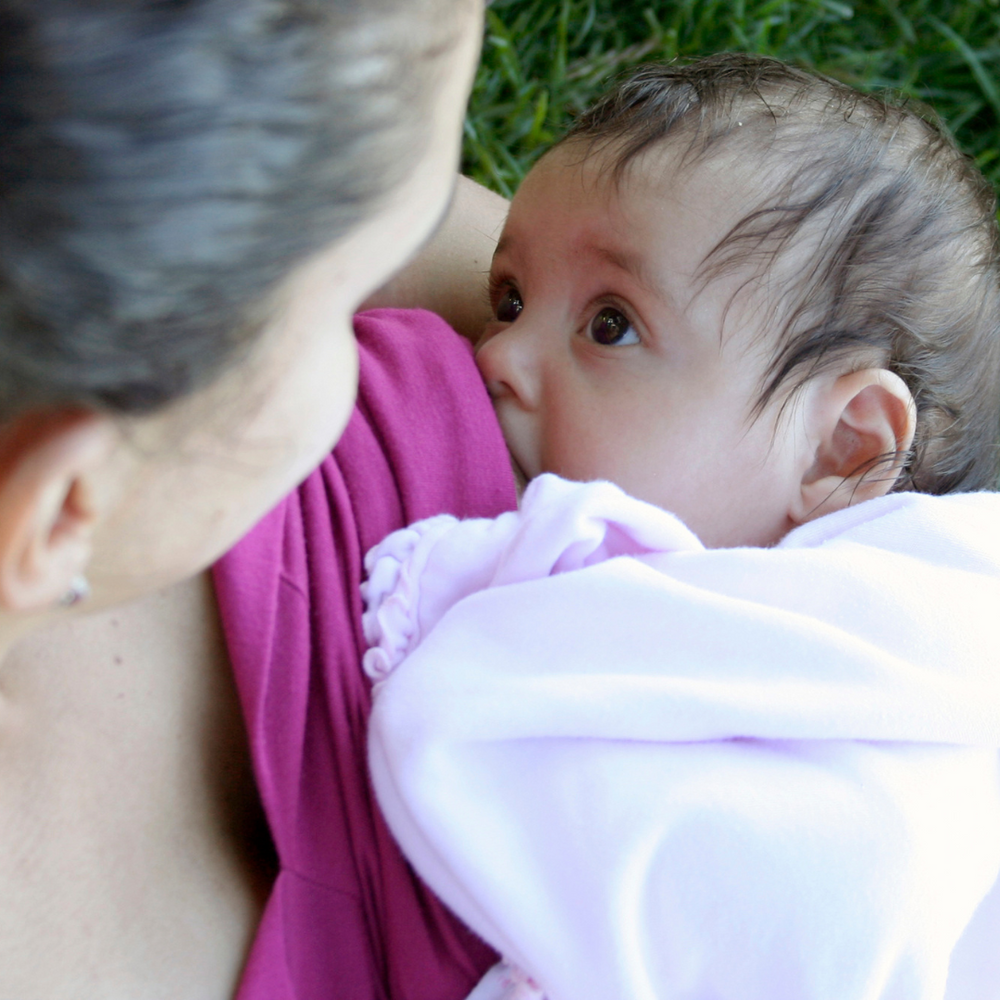We are what we eat! And so, doesn’t it make sense that our bodies make breastmilk which is as good as the food we eat? More often than not, online advice about breastfeeding will include a statement like, “Women should eat a healthy diet when they are breastfeeding”.
But how is our breastmilk impacted by our own diet? Does breastmilk only contain the nutrients that we eat? Should we be worried about our baby’s health if our diet isn’t perfect?
The short answer is NO!
Nutrients
The fact is that the nutritional content of breastmilk is similar for everyone, no matter what they choose to eat. You would have to be extremely malnourished (such as in an extreme famine situation) for your milk supply or your milk’s nutritional content to be affected. Therefore, most people will make perfectly nutritionally balanced breastmilk no matter what they eat.
Other components of breastmilk, such as cells which support the baby’s immune system, stem cells and a special molecule which feeds the healthy bacteria in the gut (all of which are entirely absent from formula) will be in breastmilk no matter what your diet is like.
The vitamins in breastmilk, however, do need to come from somewhere and, if you are not consuming enough of a certain vitamin or mineral or are seriously deficient in it, this may lead to health problems for you. For this reason, watching your diet and, if you feel the need to, taking vitamins supplements, could be beneficial for your own health.
Vitamin D
Vitamin D is one exception – although this isn’t really related to the foods you eat. Rather than being absorbed from food, this vitamin is primarily made by the body when the skin is exposed to sunlight. Although Vitamin D is available in some foods (oily fish, egg yolk, mushrooms), even if you eat a lot of these almost all of your Vitamin D still needs to come from sunlight.
It is quite common for people to be deficient in Vitamin D, especially in countries which are often cloudy or rainy, such as the UK. You can have your blood tested for Vitamin D levels before deciding whether to supplement yourself and/or your baby. Taking a supplement yourself should boost the amount in your breastmilk, but you can also give your baby Vitamin D drops directly. If you are giving a baby under 6 months old any vitamin drops, it’s best to give them on a teaspoon rather than in a dropper because droppers can’t easily be cleaned or sterilised.
Iron
One essential mineral that is talked about a lot when it comes to breastfed babies is iron. Iron is needed in the body to create healthy red blood cells, which transport oxygen around the body. People who have anaemia don’t have enough of these red blood cells, so their bodies may not receive enough oxygen. This is why they often feel tired.
Breastmilk has the right amount of iron for a baby’s needs in a form which is very easily absorbed by their body. In addition, other components of breastmilk help their body to absorb the iron and use it efficiently, like a team of nutrients working together in perfect harmony. The type of iron which is in formula milk is harder for the body to use, so a lot is wasted.
Even if you are low on iron yourself, your breastmilk should still contain the right amount of iron for your baby. Only people who are very anaemic may have a lower than ideal amount of iron in their milk. In this case, the evidence says that taking an iron supplement should be enough to increase the iron in your breastmilk. This is likely to be better for your baby than supplementing them with iron directly.
Can my diet upset my baby’s tummy?
Sometimes, you may want to try to settle your fussy baby by cutting out important foods from your diet, such as broccoli or cabbage. Even if these foods make you feel gassy, it doesn’t mean they will affect your baby, as there is no mechanism by which gas from your intestines can get into your milk.
Occasionally, a baby will react to certain foods that their mother has eaten because proteins from these foods do make their way into the breastmilk. If a baby has an intolerance to these proteins this may cause a reaction. However, it’s far more likely that the fussiness will be either normal baby behaviour or a problem with the way that the baby is latched to the breast. Babies who are not deeply latched onto the breast may also swallow air which can cause pain and gassiness – not the broccoli!
Summary
There is much misinformation on the internet about what you ‘should’ or ‘shouldn’t’ eat when breastfeeding but, for most women and people, their diet won’t make a difference - either to the vitamins and minerals in their milk or to their baby’s behaviour.
Eating a healthy and varied diet, however, will help you to feel energised and well, which is really what you need when you’re caring for a tiny human!




















